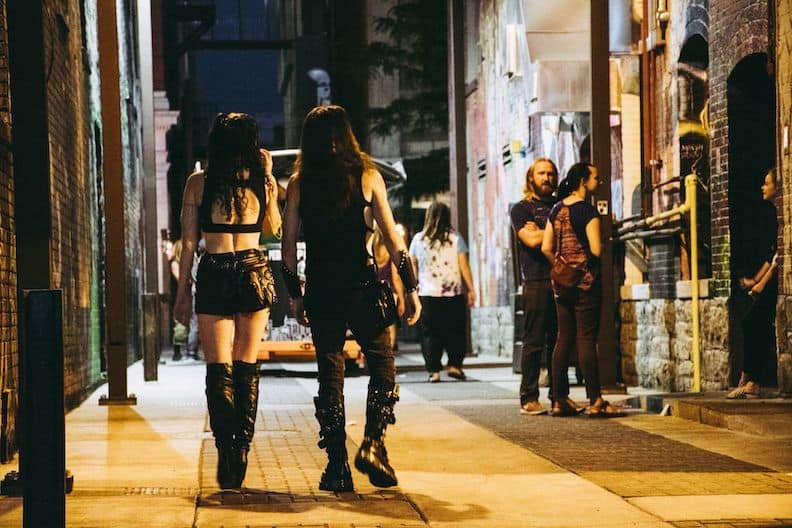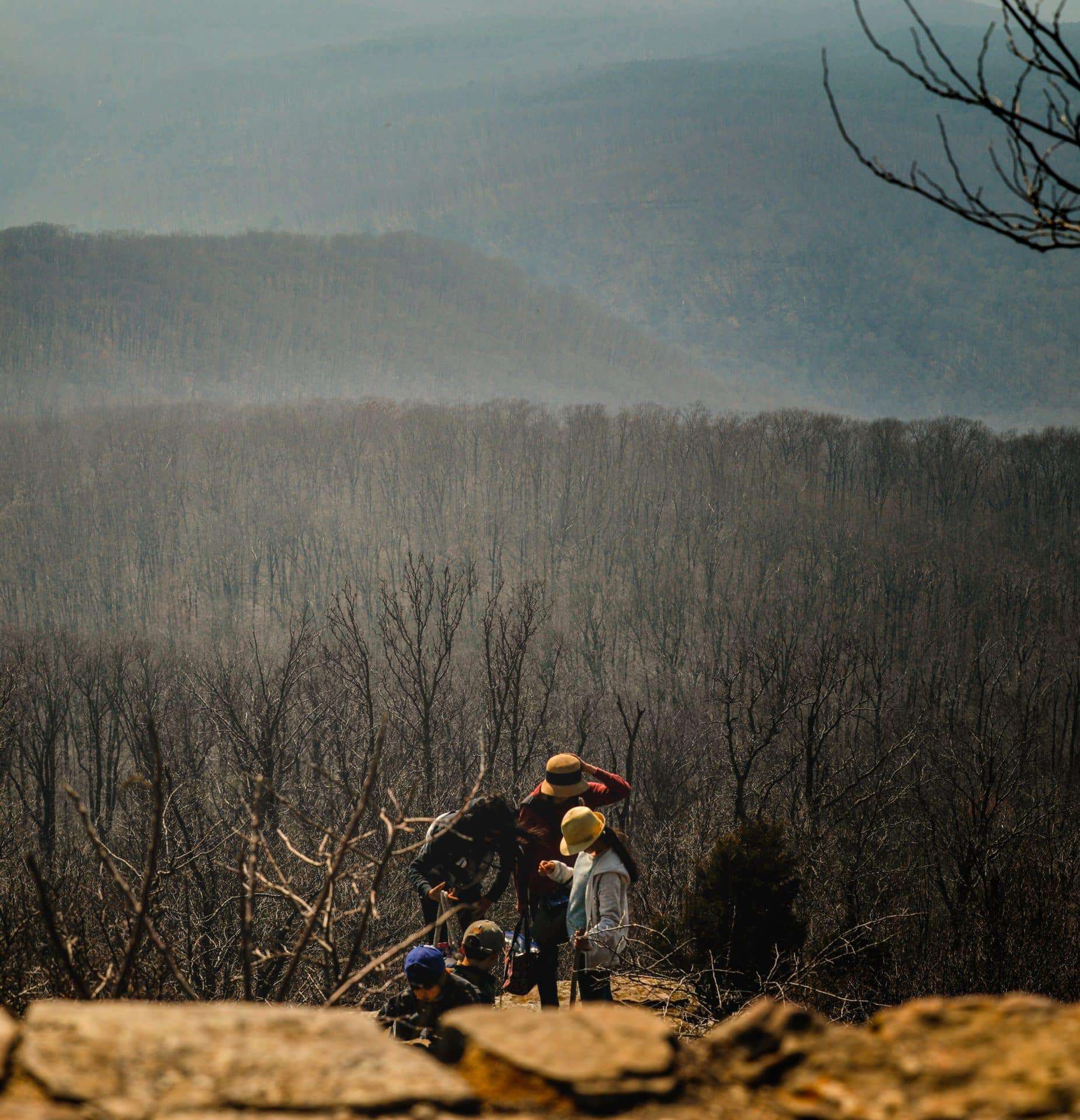The Family Cannot be Redefined
We Need a New Ecological Culture
The Most Important Environment is the Family
To Protect the Environment, Protect the Family
The key to fixing the “serious destruction” of our environment is the family.
Pope St. John Paul II, 38
“Through our family, we belong to the whole of creation; we contribute in a specific manner to promoting ecology”.
Synod Report to Pope Francis, 16
A Rebellion Against Family Is a Rebellion Against Nature
- “The book of nature is one and indivisible: it takes in not only the environment but also life, sexuality, marriage, the family, social relations”. (Pope Benedict XVI, 51)
- “[M]an sets himself up in place of God and thus ends up provoking a rebellion on the part of nature, which is more tyrannized than governed by him.” (Pope St. John Paul II, 37)
- “Tragically, the human response to this gift has been marked by sin, selfishness and a greedy desire to possess and exploit. Egoism and self-interest have turned creation…into an arena of competition and conflict.” (Pope Francis)
- “The neglect of creation and social injustices influence each other“. (Pope Francis)
“Taking up this challenge seriously has much to do with an ethical and cultural decline which has accompanied the deterioration of the environment.”
Pope Francis, 162
You may want to review.
Is the Crisis Insurmountable?
No! The Church calls for the development of…
“a new ecological culture…
exploring aspects of an ‘integral ecology‘ must include not only the environment, but also human, social and economic conditions”. (Synod Report to Pope Francis, 16)
We must end the “corruption of the idea and the experience of freedom, conceived not as a capacity for realizing the truth of God’s plan for marriage and the family, but as an autonomous power of self-affirmation, often against others, for one’s own selfish well-being.” (Pope St. John Paul II, 6)
“It is contradictory to insist that future generations respect the natural environment when our educational systems and laws do not help them to respect themselves”. (Pope Benedict XVI, 51)


“a new ecological culture…
exploring aspects of an ‘integral ecology‘ must include not only the environment, but also human, social and economic conditions”. (Synod Report to Pope Francis, 16)
We must end the “corruption of the idea and the experience of freedom, conceived not as a capacity for realizing the truth of God’s plan for marriage and the family, but as an autonomous power of self-affirmation, often against others, for one’s own selfish well-being.” (Pope St. John Paul II, 6)
“It is contradictory to insist that future generations respect the natural environment when our educational systems and laws do not help them to respect themselves”. (Pope Benedict XVI, 51)
“It would be wrong to uphold one set of duties while trampling on the other. Herein lies a grave contradiction in our mentality and practice today: one which demeans the person, disrupts the environment and damages society.”
Pope Benedict XVI, 51

Family is Intimately Connected to Ecology
“Our duties towards the environment are linked to our duties towards the human person“. (Pope Benedict XVI, 51)
“Unless we struggle with these deeper issues, I do not believe that our concern for ecology will produce significant results.” (Pope Francis, 160)
“If there is alack of respect for the right to life and to a natural death, if human conception, gestation and birth are made artificial, if human embryos are sacrificed to research, the conscience of society ends up losing the concept of human ecology and, along with it, that of environmental ecology.” (Pope Benedict XVI, 51)
“[T]he relationship between human life and the moral law…is necessary for the creation of a more dignified environment.” (Pope Francis, 155)
“It is only the rock of total, irrevocable love between a man and a woman that can serve as the foundation on which to build a society that will become a home for all mankind.”
Pope Benedict XVI
Learn More
Learn More
FAQs
Q: What rights do families have?
A: Pope St. John Paul II, Familiaris Consortio, 46
- the right to exist and progress as a family, that is to say, the right of every human being, even if he or she is poor, to found a family and to have adequate means to support it;
- the right to exercise its responsibility regarding the transmission of life and to educate children; family life;
- the right to the intimacy of conjugal and family life;
- the right to the stability of the bond and of the institution of marriage;
- the right to believe in and profess one’s faith and to propagate it;
- the right to bring up children in accordance with the family’s own traditions and religious and cultural values, with the necessary instruments, means and institutions;
- the right, especially of the poor and the sick, to obtain physical, social, political and economic security;
- the right to housing suitable for living family life in a proper way;
- the right to expression and to representation, either directly or through associations, before the economic, social and cultural public authorities and lower authorities;
- the right to form associations with other families and institutions, in order to fulfill the family’s role suitably and expeditiously;
- the right to protect minors by adequate institutions and legislation from harmful drugs, pornography, alcoholism, etc.;
- the right to wholesome recreation of a kind that also fosters family values;
- the right of the elderly to a worthy life and a worthy death;
- the right to emigrate as a family in search of a better life.
Q: What else must the state do in support of the family?
A: The political community has a duty to honor the family, to assist it, and to ensure especially:
- the freedom to establish a family, have children, and bring them up in keeping with the family’s own moral and religious convictions;
- the protection of the stability of the marriage bond and the institution of the family;
- the freedom to profess one’s faith, to hand it on, and raise one’s children in it, with the necessary means and institutions;
- the right to private property, to free enterprise, to obtain work and housing, and the right to emigrate;
- in keeping with the country’s institutions, the right to medical care, assistance for the aged, and family benefits;
- the protection of security and health, especially with respect to dangers like drugs, pornography, alcoholism, etc.;
- the freedom to form associations with other families and so to have representation before civil authority. (Catechism of the Catholic Church, 2211)

